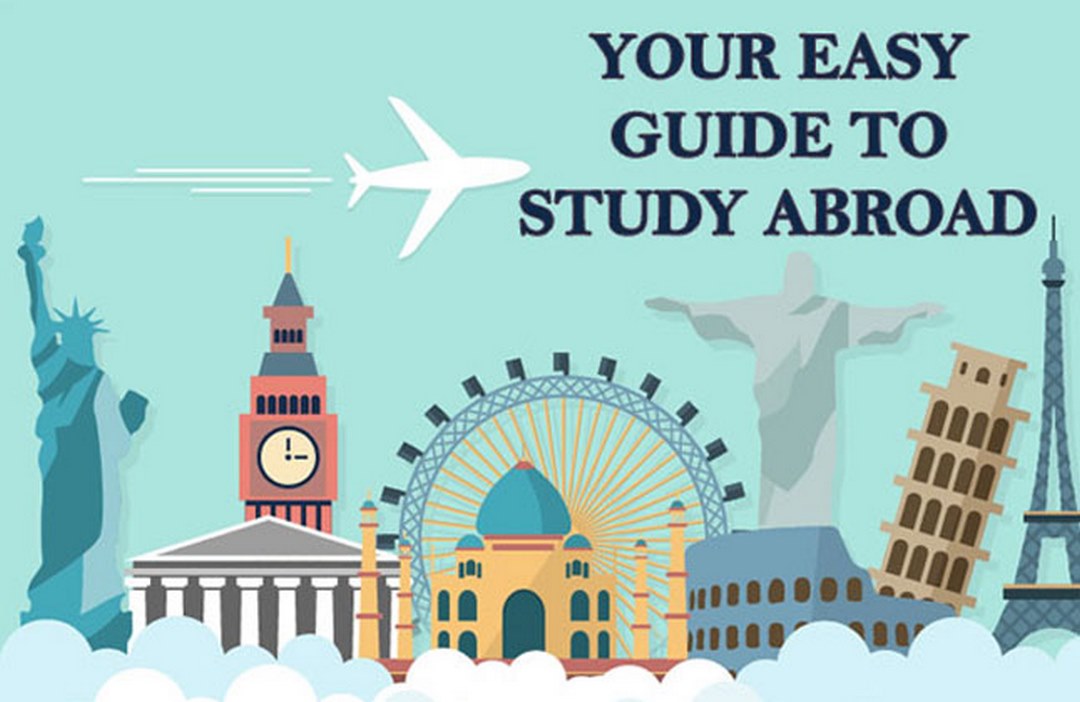
Nowadays, studying abroad opens a door for students to enhance their career prospects. Overseas studying is a priceless experience, but many students postpone this academic dream or give it up because of the exorbitant cost of international study. Fortunately, there are many opportunities for students to study overseas with lower or free tuition. If you are looking for some opportunities for yourself, you can learn about them through this article.
Article Table of Contents
Is studying abroad for free difficult?
Many believe studying abroad is expensive because it provides access to high-quality education from developed nations worldwide. However, with the support of the government and educational institutions, people from all walks of life, regardless of their academic background or financial situation, can pursue higher education abroad.
Studying abroad for free can be challenging for those unaware of available opportunities or need support finding resources or programs. However, there are many countries where students can study abroad for free or at a lower cost. With some research and planning, studying abroad for free or at a reasonable price is possible.

Studying abroad for free is easy if you can find suitable study programs or available financial aid. (Source: Fulbright)
How can you study abroad for free?
Studying abroad can be an enriching and life-changing experience, offering new perspectives, cultural immersion, and global career opportunities. However, the financial aspect of studying overseas can be a challenge for many students. Concerns about tuition fees, living expenses, and the overall economic restraints may overshadow the allure of international education.
However, don’t let budget limitations discourage you. There are many ways and strategies to make studying abroad a reality, regardless of your financial resources. If you’re looking for tips on creating a study abroad budget that works for you, keep reading for some helpful methods.
Apply for scholarships
Many universities around the world offer a variety of scholarships for both domestic and international students. With thousands of scholarships available, you will find one that aligns with your interests and financial and social backgrounds.
Scholarship requirements vary among schools. To achieve a high pass rate, you need to prepare an impressive profile, high academic scores (GPA), letters of recommendation, etc. In addition, English-language certificates such as IELTS or TOEFL, thinking tests (SAT, GRE), etc., also help increase your chances of winning a scholarship if you attend study programs in this language.
Find financial support programs
If you have your sights set on studying abroad tuition-free, investing time in researching financial aid programs is a wise decision. Annually, countless students receive invaluable support from scholarships and grants offered by various organizations. These include charitable foundations, government bodies, and educational institutions themselves. Unlike traditional student loans that require repayment, financial aid programs can significantly reduce or eliminate the economic restraints of studying abroad. These programs typically cover tuition fees and living expenses, allowing you to focus on your academic pursuits and cultural immersion.
Detailed information on eligibility criteria for these programs is usually available online. University websites and program pages often host comprehensive information about financial aid options. If you need help locating the information online, feel free to contact the admissions department or program coordinator. They’ll gladly answer your inquiries and help you with the application procedure.
Consider student loans
Student loans are frequently ranked as one of the most effective solutions to bridge the financial gap when considering studying abroad. While not a cost-free option, loans can help you fulfill your study abroad dreams without paying a large sum of money upfront.
Several types of student loans are available, depending on your situation. You can explore options offered by your home country’s government or financial institutions. Additionally, some universities abroad might partner with lenders providing college or graduate school loans for international students, such as Earnest, Juno, Credible, SoFi, ISL Education Lending, Ascent, ELFI, and Splash Financial. It’s crucial to thoroughly research all options, considering factors like interest rates, repayment terms, and eligibility requirements, to choose the loan that best suits your financial situation and long-term goals.
Consider the work-study program
Studying and working abroad can be challenging for international students without visas. However, work-study programs will allow you to earn income to offset the costs of your study abroad program.
Various work-study positions are available on the university campus, including roles in the library, front desk staffing, administrative duties, research assistantships, and dining hall work. The work-study program is convenient for students because they can save time for commute and create school networks while earning income and accumulating work experience.
In addition, you can find off-campus work-study jobs at nonprofit organizations and businesses. Remember that many countries allow you to work part-time, depending on their labor laws and policies for international students. For example, in the United Kingdom (UK), you can work up to 20 hours per week if you stay for more than six months, while in Spain, you can work as long as it is relevant to your field of study.
Study abroad online
Consider studying abroad online to earn an international degree. Many universities now offer online programs, allowing you to obtain international academic qualifications without leaving your home country. Although you live in your country, you can stay connected with students from international backgrounds. You also have the chance to learn about different cultures and enhance your communication skills.

You gain many advantages of a traditional study abroad program through online learning. (Source: edwiseinternational)
Where can you study abroad for free?
You can turn your aspirations for studying abroad into reality by establishing a clear budget, selecting suitable programs, and choosing destinations with a reasonable cost of living. Start by researching some of the most popular and cost-effective study-abroad destinations, considering their average living costs and tuition fees. You can also check our destination recommendations below for further reference.
Germany
Germany is an excellent choice for international students seeking a high-quality education with affordable tuition fees. Public universities nationwide have eliminated tuition fees for all students, including international applicants, making Germany an attractive option for ambitious talents worldwide. However, while some universities offer programs entirely in English, most programs in Germany are taught in German. Therefore, international students who wish to study for free must demonstrate proficiency in the official language of Germany.
Finland
Finland offers free education for Finnish and European Union (EU)/European Economic Area (EEA) citizens. Meanwhile, international students from outside the EU enrolled in English language programs must pay tuition fees. No fees are required if students are studying in Finnish or Swedish programs, regardless of nationality. In addition, international students pursuing doctoral programs are exempt from paying any tuition fees at Finnish universities. Therefore, studying in this country can benefit prospective doctoral students.
Czech Republic
The Czech Republic provides tuition-free college education to all students, including international students. However, these free tuition programs are only offered in Czech. For students seeking programs in English, the Czech Republic has many affordable options, some with no tuition fees.
Argentina
Argentina is another country offering free tuition for domestic and international students. This provides everyone with access to high-quality education regardless of financial situation. Furthermore, international students studying at public schools can also learn Spanish for free, the primary language used in teaching, helping to improve language skills. However, it should be noted that free tuition only applies to public schools, while private programs will have their own tuition rates.
Iceland
Iceland has numerous universities that provide free tuition to all students, irrespective of their background. This makes Iceland a desirable destination for international students, who constitute about 5% of the university population. It’s important to note that while public universities are tuition-free, other fees may be associated with registration, student life, and materials.
Panama
Public universities in Panama offer free tuition for both citizens and international students. Therefore, you can attend Universidad de Panama or Universidad Tecnologica de Panama, the two most prestigious Panamanian public universities., However, it’s important to note that private universities in Panama, though many in collaboration with universities in the US, usually involve tuition costs.
Brazil
Every student, including international students, can attend college for free in Brazil. The government subsidizes the public university system, allowing students with high entrance exam scores to participate in federal universities for free. Nonetheless, the classes are in Portuguese, so only fluent students can opt for tuition-free colleges.

You should choose several countries to search for their available academic programs if you want to study abroad for free. (Source: Shiksha)
Have you heard of studying “abroad” in your home country?
Studying “abroad” in your home country is a type of training that allows students to pursue international standard programs in Vietnam at an affordable cost. With the rise of globalization and information technology, studying abroad has become more accessible, offering millions worldwide the chance to access high-quality education. This form of learning encompasses undergraduate studies, graduate programs, professional certificates, and short courses.
Studying “abroad” in your home country can take many forms in countries worldwide. Many international universities have set up educational facilities in other countries to offer their programs. Domestic universities also collaborate with foreign universities to provide joint programs. Furthermore, studying “abroad” in your home country can also be facilitated through online learning, enabling students to study without frequent travel.
Studying “abroad” in your home country does not require students to move to another country, but the quality of education they receive shares the same caliber. The study programs are usually designed in international standards, and the degrees students earn upon completion are widely recognized worldwide.
Fulbright is proud to be a high-caliber university that offers an international experience in your home country. Fulbright University Vietnam is Vietnam’s first independent, not-for-profit, liberal arts university. Founded on the Vietnamese-American partnership, Fulbright applies a pedagogical approach based on American traditions of rigorous liberal arts education and is firmly rooted in Vietnam’s culture and heritage. The Fulbright curriculum and academic environment are student-centered and respect the uniqueness of each individual. By cultivating an environment of intellectual curiosity, pioneering spirit, and caring for others, Fulbright fosters its students into daring, versatile individuals with the courage to lead Vietnam’s and the world’s futures.
The entire curriculum at Fulbright University Vietnam is developed directly by a team of leading global lecturers. Each lecture and area of study reflects a combination of international perspective, innovative thinking, and in-depth understanding. At Fulbright, learners are empowered to explore themselves deeply and equipped with critical thinking, interdisciplinary thinking, and lifelong learning. In the first year, students attend the Core Curriculum, which includes five essential courses. This program is designed to provide an equal learning environment for all students, regardless of their starting points. Its goal is to help students discover their potential and overcome knowledge gaps.
At the end of the second year, Fulbright students officially choose 1-2 majors to pursue. Students focus on personal development at the start of their third year by engaging in various international exchange opportunities, advanced internships, and research projects. With a global network of connections, teachers will connect students with businesses, scientific researchers, and leading research centers in their respective fields.
In each subject at Fulbright, students gain solid professional knowledge and practice the skills necessary to solve real-life problems and create positive societal changes. A remarkable example is the “Developing Vietnam” class, a joint effort between Fulbright and Dartmouth University–one of the eight Ivy League schools in the United States. In this class, six small groups of 19 Dartmouth and 16 Fulbright students conducted field research in Ben Tre and presented their findings in group essays and documentaries. Their research topics center around Vietnamese society, focusing on environmental issues in Ben Tre and the development of the new urban center, Phu My Hung.
Besides academic programs, Fulbright offers students many opportunities to engage with industries, such as the Venture Fellows Program, Social Impact Fellows Program, and Industry Lab. This allows them to gain experience and build a multinational network connecting local or global businesses, start-up organizations, and social change activities.
In addition, the dynamic student life at Fulbright is the cradle of valuable connections for young founders and potential start-ups. Students are required to live in the university’s dormitory for the first two years, enabling them to learn from other friends, understand the value of collective spirit, and practice emotional intelligence. Many unique ideas resulted from this transformative period, playing a crucial part in students’ core memories and project portfolios.

SeeSaw Vietnam, a project that provides game sets to enhance the quality of mental well-being, was incubated in the dynamic, close-knit Fulbright student community. (Source: Fulbright)
Another advantage of studying at Fulbright is the availability of financial aid programs and scholarships. Fulbright University Vietnam offers a need-based Financial Aid Program, believing that every student deserves access to education, regardless of family background or social status. This grant does not require repayment and is based solely on the financial circumstances of the applicant’s family. Fulbright offers six ranges of financial aid: 30%, 50%, 70%, 80%, 90%, and 100%. The maximum package of financial assistance can cover up to 100% of tuition for four years of study, including housing fees and living expenses. Tuition fees for bachelor’s programs are updated annually; further information can be found on the school’s website.
In addition, the university offers a wide variety of scholarships, totaling 75 in number. Detailed information about all scholarships at Fulbright University Vietnam can be found here. You can also apply for financial aid programs during the scholarship application process.
To receive direct consultation and to experience Fulbright University Vietnam, please visit the following pages:
- Learn about how to apply to Fulbright: https://fulbright.edu.vn/vi/apply-to-us/
- Receive direct consultation and experience Fulbright with us: https://fulbright.edu.vn/vi/contact-us/
Studying abroad can be an enriching and transformative experience, and it doesn’t have to be expensive. With careful planning and research, you can find ways to study abroad for free or at a reasonable cost. Consider options like attending tuition-free universities, applying for scholarships, working abroad, studying in an international environment in your home country, or choosing affordable destinations. Start early, stay flexible, and apply widely to make your dream of studying abroad a reality.







